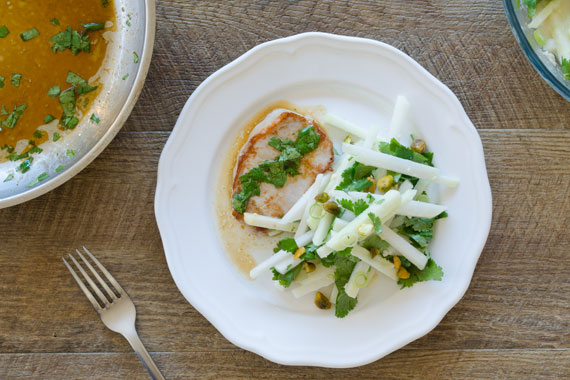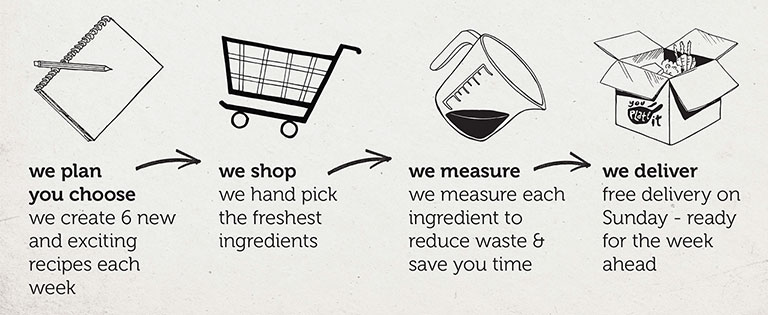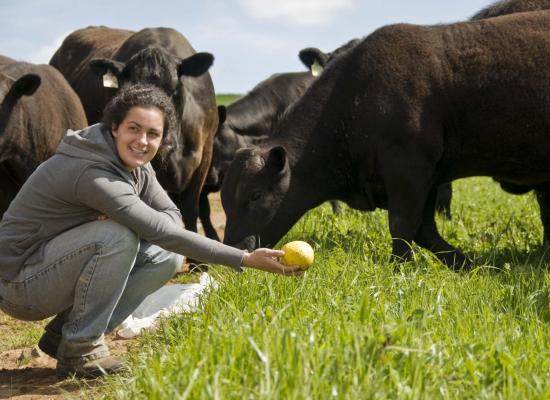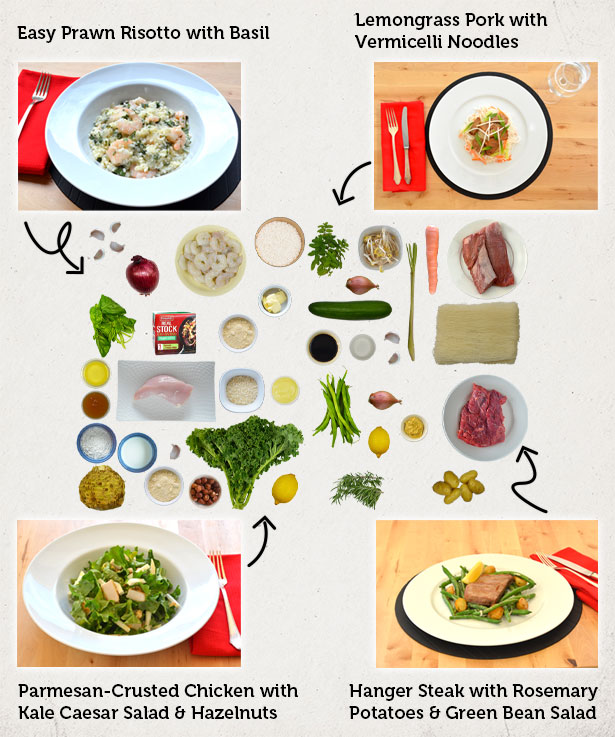Protecting the environment is something we take very seriously.

Scroll to the bottom for the CliffsNotes 🙂
According to Foodwise, the average Australian household bins 20% of all the food they purchase. This equates to more than 4 million tonnes of food waste each year! Our innovative, Perth built technology, allows us to purchase only what we need. By supplying ingredients in the exact quantity, and by avoiding retail packaging, we have created a solution to reduce food and packaging waste.
We avoid plastics
The plastic typically used in food packaging & grocery shopping can take 500 years to breakdown, and it will never return to natural products – instead it simply becomes smaller and smaller pieces of plastic. We don’t believe your weekly food shop should have an impact that outlives our grandchildren, so we’ve invested heavily in environmentally friendly packaging.
PLA clear containers – Polylactic acid (PLA) is a biodegradable polymer derived from carbon neutral and renewable resources (think corn or sugarcane). These carbon neutral containers are the perfect alternative to oil based plastics. All our small containers are made from this innovative product. You can recycle these hard containers in Perth’s kerbside co-mingle recycling, but remember to remove the lidding film (Perth’s recycling cannot deal with soft plastics).
Cellophane – Cellophane is a thin, transparent sheet made of cellulose regenerated from items such as wood, cotton or hemp. Made from renewable resources, it’s perfect for food packaging and is 100% biodegradable. We use cellophane to pack our spices and pantry products such as rice or quinoa. Perth co-mingled recycling can’t process soft plastics, so dispose in general waste.
Produce bags – To keep fresh produce crisp, we use an innovative soft plastic PLA. This bag is carbon neutral, home compostable, and great for collecting your cooking scraps. Place in general waste or household compost (again, soft plastics can’t be recycled in Perth’s yellow top recycling bin)
We use renewable paper and cardboard
All the paper and cardboard products we use are made from sustainable and renewable forestry products. All our cardboard and paper can be recycled and any returned boxes are either reused or locally recycled.
We manufacture our icepacks in-house to reduce carbon
Other companies use ice packs that have been shipped from overseas, or over east. The energy (carbon) used to truck what is effectively water across the plant is insane. We 3D printed an ice pack making machine and our ice packs come direct from the tap. No shipping, no unnecessary carbon footprint.
We reuse and recycle polystyrene eskies
Your food needs to be cold when it arrives at your home, so we use locally made styrofoam eskies (the same type used in broccoli farming). We encourage all our customers to return these so we can reuse them. There is no limit to the number of times an esky can be reused. We protect them with cardboard so they don’t get damaged and they can be reused indefinitely.
We reuse and recycle our icepacks
Our water-soluble gel packs are completely non-toxic and non-hazardous. We encourage our customers to return these so we can reuse them. When they can’t be reused, we dispose of the gel (it has no traceable environmental impact) and soft plastic packaging.
Cliffs Notes…
- Return your esky and ice packs with your next delivery. We clean and reuse them. There is no limit to the number of times the esky can be reused (their durability is the reason we use them). If you don’t intend to receive a delivery again, you can return to our facility (contact us for details).
- There are a number of innovative ways we reduce carbon and other waste, but the three we’re most proud of are; our dedicated use of carbon neutral bio-blastics, our almost zero food and retail packaging waste, and our in house manufacture of icepacks.
- Our small clear bags are Cellophane, which is made from tree pulp, and should go into general waste.
- Recycle paper bags and other paper products in your yellow top recycle bin.
- Recycle the clear containers used for herbs and liquids, but fist remove the soft lidding film.
- Soft plastics such as lidding film can be recycled at some supermarkets or workplaces. If you don’t have that option, place in general waste.*
*Our cities are still working on ways to effectively collect and process soft plastics so they can’t go in the yellow top bin (they badly clog up machinery).






